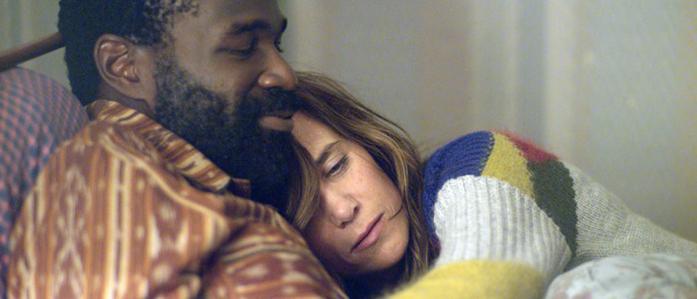By Girindra Selleck
[email protected]
Sebastian Silva’s new film,Nasty Baby (which he both directed and stars in), is a complex tale about life, death, and the complicated nature of the time in between.
Nasty Baby plays like a modern-day rendition of a classic Greek tragedy, only the marble amphitheaters of Athens are swapped for the exposed brick lofts of 2015 Brooklyn.
The story follows the neo-bohemian trio of Freddy, (an emerging performance artist played by Silva), his carpenter boyfriend Mo (played by the excellent Tunde Adebimpe, lead singer of acclaimed art-rock collective TV on the Radio), and his best friend Polly (Kristen Wiig, whose latest foray into the dramatic side of film places her as a relief worker at a local clinic).
The plot unfolds on three parallel tracks that eventually intersect at a junction in the film’s stomach-churning and somewhat abrupt final act.
Freddy and Mo desperately want to have a baby, and Polly volunteers to act as the surrogate mother. It is originally agreed Freddy will be the biological father, but after test results reveal that his sperm count is too low, the consensus is reached that Mo should be the donor.
Freddy’s inability to produce the seed for his own child causes him a great deal of shame and regret, so he uses his medium as an artist to reconcile some of this guilt. He creates a video of himself, naked and screaming in a baby’s crib, to represent the appropriately infantile helplessness he feels.
The resonance between the first two arcs and the innocence of the trio’s journey to conceive a child find themselves disturbed by the growing interference of an unwelcome neighbor, known only as the Bishop.
The Bishop (Reg E. Cathey, who, fresh off an Emmy win for his nuanced turn as Freddy Hayes in Netflix’s “House of Cards,” shows no signs of slowing down) begins his role as a mere nuisance and a vocal but seemingly harmless bigot, using a leaf-blower at 7 a.m., and muttering slurs of “faggot” at the couple as they walk down the street.
The first real inklings of something darker manifest when Polly is walking (or rather scooting home, in truly eccentric Brooklynite fashion) and the Bishop stops her on the street for a conversation. At first, there is nothing inherently violent about the Bishop’s actions — Silva leaves it up to the audience to decide whether or not he is diagnosed with any mental illness or just bigoted and aggressive — but his demeanor during the exchange leaves the audience in an unshakeable state of uncertainty and pre-empts some of the events that occur down the stretch.
While Nasty Baby’s disturbing final act could be viewed as extreme and somewhat frivolous, overall, the film’s direction is good; Silva’s screenplay rolls effortlessly off his characters’ tongues, and all of the actors (Wiig and Adebimpe in particular) deliver commendable and honest turns in each of their respective roles.
The film, which will open Friday at FilmScene, 118 E. College St., is an excellent example of how much a filmmaker can accomplish with a relatively simple script and no-fluff cinematography.
7/10



